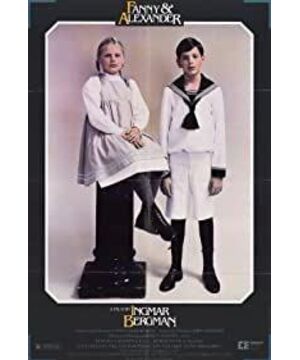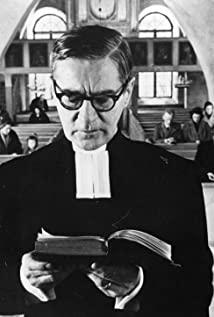Inferiority towards one's own ethnicity or national existence is very common. The biggest example of this is the belittling and bad criticism of the country's masters of art. Akira Kurosawa is not valued by the Japanese, so much that he needs to ask Europeans and Americans to give him money to make films. The Japanese also despised Kitano Takeshi, thinking that he was just talking about cross talk. Fellini was also looked down upon in Italy, and Bergman was expelled from the motherland because of unwarranted tax problems. But we should see another very important aspect, which is also an important part that helps us understand Bergman and even Tarkovsky, that is: the differences in culture and social life. The Nordic cultural circle and the Eastern Tang Dynasty have circled several times, and foreigners do not know the identities of these masters: Takeshi Kitano has been active on TV all the year round, Bergman has been managing theaters in Sweden, and filming can even be said It's his side job. (No need to say much about the Nordic people's emphasis on drama) In his autobiography, the first drama mentioned is Strindberg's "The Drama of a Dream". The entanglement of dreams, fantasy and reality is the theme of his life (people think so). In my opinion, Bergman is a hidden realist. Bergman said that Fellini and Tarkovsky can walk in the dream world, Antonioni is less, and he himself can reach the door of the dream world very occasionally. Moreover, his works (including plays) are very numerous, and a considerable part is done in order to complete the task, so the lack of artistry in these works is very large. The most important clue to decoding Bergman is his "last film": Fanny and Alexander. The five-plus-hour film has been held grudged by a well-known director for its blunt presentation of Bergman himself, who said, "I don't understand why he did it." Being linked to Dream of Red Mansions, but I personally don't think it's a good match. There are some similarities only in: the family structure is the core of the relationship between the characters and the female characters with strong personality. Women are Bergman's concern since he was a child, and Bergman's nature is filled with strong inferiority complex and anxiety, and he also maintains a high demand for sex all year round. All the reasons congealed together, made him so irresistible in front of women that he fell in love with almost every heroine in the drama/movie he directed (and that didn't even include his real-life affair). Clearly, Bergman is not a confident and outgoing person. His inferiority stems from his father, who is a bishop like the stepfather in the movie, and the oppression of his brother. At the same time, Bergman has some problems with his digestive tract, and some problems caused by stress or other reasons even made him incontinent. in shame and fear At the time, his character also had a adoring side. This cult is hidden deep in Bergman's character, and it is hard not to say that this "cult" has a gay overtone. There is only one ambiguous reference to homosexuality in his autobiography, in which he refers to a letter sent to him by a proud gay friend despising heterosexuality with feminine irony. I personally feel that "same-sex love" is something Bergman repressed really deep inside, and in the climax of "Fin and Ya", Alexander wanders in the house of Erland Josephson that symbolizes the depths of the director's spiritual world , and then was led by the older brother into the younger brother Ismail's room, which was the deepest part of the director's heart. Ismail is the younger brother, but a daughter, with white shiny skin and short hair, but no eyebrows, she/he has a strong sexual metaphor for Alexander's actions, she Touching Alexander's heart, Ismail touched his fantasy and opened the door to the fantasy world (a world between reality and dream). In his heart, Bergman's feelings for women can be described as distorted and tangled. There are love and "uglification", worship and fear in this emotion. Bergman cared about getting women, but not getting women. The women who appear in the Ektan family mansion have their own charms and are strong and independent. And Ismail's mystical qualities put a giant question mark on all his previous glorification. Bergman is not what most feminists think: respecting women and shaping the image of women objectively. Bergman actually created those female characters with distinct personalities by relying on the femininity in his heart and the admiration of his character, which can be said to be a more "deeper" male frequency creation method. In his classic novel War and Peace, Tolstoy divided his spiritual world into two seemingly contradictory halves - the ruthless and rational Andrei Bauerkonsky and the gentle and emotional Pierre Bezukhov. Their "friendship" seems to be opposites, but it is closely intertwined, and even to the extreme: it is a narcissistic love letter from one end of the spirit to the other. In "Fin and Ya", Bergman seems to divide his father into two (the theater owner and the bishop), but because the real Bergman's father is not completely fierce, and his father treats his children in life. The mildness shown is actually quite a lot, so it is inappropriate to unilaterally assign Bergman's father to the bishop's side. Bergman has given Oscar the same identity as himself: the theater owner. The gentleness and kindness of this character can be said to be a mixture of the director's narcissism complex and part of his father's own personality. Then there are the other two brothers of the Akda family, who shape both It is through Bergman's memories of the family's past, and part of it inherits part of Bergman. The second brother Gustein is very good at catching women and is naive and impulsive. The third brother is neurotic, does not know how to manage money, and likes to torture and abuse his wife. All of these male characters (except Oscar and Josephson and the people in his house) yearn for the unconditional and sincere love of women. The shaping of the role of Oscar, because part of it stems from himself, satisfies Bergman's Oedipus complex, as for Andre (completely composed of his father), it is a typical Hamlet-style rebellion, but here is very different from Hamlet. The big difference: Bishop Andrei was not a murderer, and Alexander's mother chose Bishop Andrei out of genuine love. The Bergman/Alexander hatred of the father and the bishop is hardly moral in terms of motivation. The source of this motive is to appeal entirely to desire. Erland Josephson's and Oscar's lack of an unconditional and genuine desire for women has to do with their characters—even though they're all heavily related to female characters. The two of them were sacred in Bergman's heart, and the old Jewish man symbolized: the deliverer in suffering, the guide of the dream world, a man of divinity, and in a sense, God. And Oscar, a mixture of the best of himself and a kind father, the legitimate, moral possessor of his mother, whose death, so to speak, is the demise of the "Holy" in this movie's plot ("Holy" is not holy in a religious sense). After the demise of "Holy", the role of mother was occupied by the demon in Alexander's eyes. The demon bishop acted according to morality, and the childhood Bergman represented by Alexander feared most was morality, and homosexuality was immoral. Yes, Oedipus is immoral, "sex" is immoral, and the pursuit of fantasy against reality is also immoral. This horror is finally put to an end by Bergman, just as he put an end to his own fear of death in "The Seventh Seal" and just as in "Married Life" he put an end to those doubts about the hopelessness of marriage. The bishop is burned to death by the (immoral) fire that symbolizes judgment and "purification", and the story comes to an end. The final family banquet in this movie is a mixture of white and red (pink), and the bright red, which symbolizes warmth, is changed by the "pure" white. The story finally returns to what bears it - the family. What does family mean to Bergman? The family is warmth and support for Bergman, saving him in times of crisis. The family is the memory of his youth and the source of all future creations. The family is the inheritance of life, he is a child of the family, and he has the shadow of every family member. Family The family is also a part of the extinction from the real and spiritual world. Bergman's life after leaving home can be described as a turbulent life. He is accompanied by only one woman after another, and the island of Faroe, which he has always loved the most. "Fanny and Alexander" is a photography collection of the director's spiritual home, and it is also the director's gentle elegy for the past. The beauty and sadness of this film can be said to be "happy but not promiscuous, sad but not sad." Of course, I never believed that Bergman was a completely sincere person. No matter how beautiful the instant noodle packaging bag is, the actual product shall prevail.
View more about Fanny and Alexander reviews











